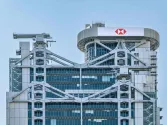
Zurich Malaysia aims for positive sustainable impact with refreshed ESG framework
Insurer’s 2023-2025 framework hopes to foster sustainability.
Swiss-insurer Zurich Malaysia took centre stage at the recent 2023 Insurance Asia Forum in Kuala Lumpur, spreading the value of sustainability and its positive implications for Malaysians in the years to come.
Sharing insights into the company’s enduring commitment to a zero-carbon emissions future at the forum last 24 May was Teresa Wong, Zurich’s chief risk officer covering the General Segment who is also head of Sustainability Risks.
Wong said Zurich has embraced a comprehensive 2023-2025 framework that aims to drive transformative change and create a positive impact on the planet, the people, and the customers. At the core of this framework is a focus on interconnected goals, including achieving net-zero emissions and promoting a positive environmental footprint while ensuring the resilience of the planet and society.
3 pillars for sustainability
The company has established three pillars to guide its sustainability efforts.
The first pillar revolves around a commitment to a 1.5-degree Celsius future. This entails avoiding involvement in greenfield oil exploration projects, completely phasing out coal from its underwriting portfolio, and refraining from engaging in oil and gas drilling and production in the Arctic region.
According to Wong, Zurich has been on track to reaching this pillar and has made advancements sooner than expected. “We are hitting 1.5 degrees Celsius [Paris commitment] probably this year or next year,” she said during the panel discussion.
Building upon the achievements of the first pillar, Zurich has set additional goals focused on reducing carbon emissions in both investments and operations. As part of this commitment, the company has introduced the Carbon-Neutral Fund and other environmental, social, and governance (ESG) funds tailored to its life clients.
Moving to the second pillar, Wong said Zurich gives importance to establishing trust in a digitalized society. The company has made significant progress towards fulfilling its global execution data commitment, approaching full implementation worldwide.
Also, Zurich is dedicated to adopting an assurance framework guided by artificial intelligence (AI) that adheres to ethical principles of “fairness, transparency, and accountability.”
Its last pillar is attaining work sustainability. This translates to increased gender diversity within high-rank roles, continued increase of learning hours, a hybrid work set-up, and improved employee satisfaction.
Targeting the key areas
According to Wong, Zurich was able to conceive its framework for sustainability from a materiality assessment in 2022.
“We’ve conducted entirely, with all the necessary stakeholders from each business function and drew up the metrics to state where we should look and what the risks were,” Wong said.
The sustainability framework 2023-2025 – implemented across regional offices – is based on the previous three pillars which now focus on customer, planet and people sustainability.
The framework to be implemented pivots on achieving net-zero actions or nature-positive outcomes, becoming a global employer with an upskilled inclusive workforce, and collaborating with customers to insure the transition whilst pushing for sustainable living, she said.
By recognising the interconnectedness of three core focus areas, Zurich Insurance aims to develop innovative underwriting and claims solutions that not only benefit its customers but also contribute to the well-being of people and the planet.
Through responsible investment practices, the insurer strives to enhance the positive impact generated by its invested assets.
In addition, their strategic community investments, facilitated by the Z Zurich Foundation, are also dedicated to building a brighter future for the most vulnerable members of society.
Zurich Malaysia’s ESG journey
With the comprehensive framework in place, Zurich is actively integrating ESG principles into various aspects, including training, information dissemination, process integration, and active ownership.
The impact of climate change is evident in Malaysia, with floods alone causing approximately $1.5 billion in damages in 2022. Zurich Malaysia highlighted the significant consequences faced by thousands of Malaysians, affecting their livelihoods and way of life, as stated in a report.
In alignment with Zurich’s sustainability pillars, the Malaysia segment of the insurer successfully implemented a strategy last year. Zurich Malaysia partnered with the Tropical Rainforest Conservation & Research Center (TRCRC) to contribute to forest restoration efforts. This collaboration involved the planting of over 12,000 trees and the conservation of the Merisuli in Lahad Datu.
In 2023, Zurich Malaysia is focused on aligning its refreshed sustainability framework with local strategies that prioritise the well-being of customers, the planet, and the people.
It has a commendable history of giving back to the community and one of its notable initiatives is the “Eat Right to Play Right” campaign, aimed at making a positive impact on Malaysian youth through sports.
Likewise, the Epic Home programme, in collaboration with Zurich volunteers, has made a significant difference in the lives of Malaysians by constructing new house settlements in Zeek and Suratman, located in Kampung Orang Asli Gurney, Ulu Yam.
Wong emphasised the importance of collective action, urging everyone to reflect on sustainability within their own organisations. “I would like to have a call to action that you go back and ask [the people in your office] to think about sustainability as well. Why? Because it encompasses the whole organisation as well,” said Wong.



















 Advertise
Advertise







